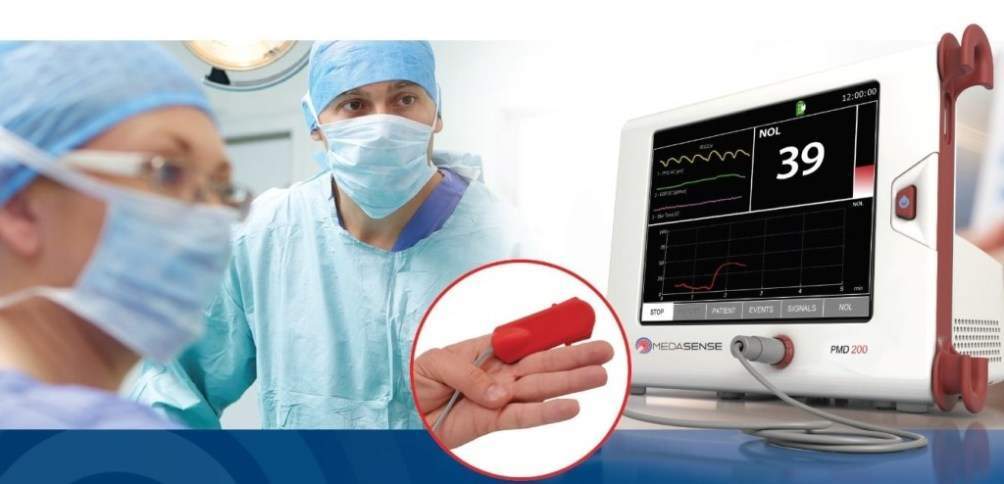
Medasense said the leading study, investigating NOL-guided opioid administration, demonstrated that using the NOL technology significantly reduced opioid-consumption and improved hemodynamic stability in patients undergoing major surgery
Clinicians can optimize the delivery of pain medication using NOL technology by assessing patient’s nociceptive (pain) state in situations where patients are unable to communicate, particularly in critical care and surgery under general anaesthesia.
In all the studies, the role of NOL (the nociception level index, presenting the patients’ pain state on a scale of 0 to 100 on the PMD-200 monitor) in providing pain assessment for improved outcomes was evaluated.
In the first study, Leiden University Medical Centre’s (LUMC) Professor Albert Dahan and his team aimed to investigate whether NOL-guided administration of opioid analgesics during surgery versus standard practice would affect opioid use and patient outcomes. Results from the study were presented at the Anaesthesiology 2018 conference in San Francisco, US.
The study had 80 patients who underwent elective major surgery during remifentanil/propofol anaesthesia with NOL-guided analgesia, versus standard of care.
Current standard of care is dependent on the discretion of the attending anaesthesiologist to administer opioids based on changes in a patient’s heart rate and blood pressure.
Results from the study showed that NOL-guided opioid administration led to 33% less intraoperative opioids and 80% less hemodynamic hypotensive events.
The researchers concluded saying: “opioid administration based on NOL is clinically relevant and improves patient outcome.”
The second study was conducted from Belgian University, Université Catholique de Lovain’s team of Professor Patricia Lavand’homme and colleagues.
The team sought to assess the link between the intraoperative NOL values and postoperative recovery after knee arthroplasty with Opioid-Free Analgesia Protocol.
The study involved analyzing 75 adult patients. The results were presented in September at the International Association for the Study of Pain (IASP) 2018 conference and they showed that NOL correlated with pain at mobilization on day 1 following surgery, and pain at movement 3 months following surgery.
The authors concluded saying: “control of intraoperative nociception (assessed by NOL) is important as it may predict early and longer-term postoperative pain.”
Medasense CEO and founder Galit Zuckerman-Stark said: “A growing body of evidence indicates that intraoperative hypotension increases the risk of myocardial injury, acute kidney injury, and mortality. The study demonstrates the importance of NOL monitoring during surgery and its potential to reduce the probability of postoperative complications.”




